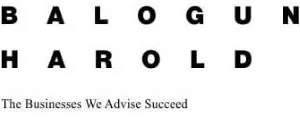- within Compliance topic(s)
- in United States
- within Compliance topic(s)
- in United States
- with readers working within the Securities & Investment industries
- within Compliance, Consumer Protection and Tax topic(s)
The National Information Technology Development Agency (NITDA) has released the 2024 Compliance Report on the Code of Practice for Interactive Computer Service Platforms/Internet Intermediaries (CoP for ICSPs/IIs). This is the second reporting cycle under the Code, following its inaugural implementation in 2023, and provides important insights into how major online platforms are responding to Nigeria's regulatory expectations on online safety, content moderation, and user protection.
Key Highlights
Scope of Report
The report covers the compliance submissions of major
platforms including Google, TikTok, LinkedIn, with comparative
observations on Meta and X (formerly Twitter).
- Account Closures and
Deactivations
Over 28 million accounts were closed in Nigeria across the reporting online platforms in 2024 due to violations such as fake accounts, harassment, child exploitation, and hate speech. - Content Removals
Online platforms collectively removed more than 58 million harmful posts, including child endangerment material, hate speech, and misinformation. - Content Appeals
Online platforms processed thousands of appeals for reinstatement, demonstrating growing transparency and user empowerment mechanisms. - Complaint Handling
Google, TikTok, and LinkedIn reported handling millions of complaints in 2024. Resolution rates varied. LinkedIn resolved over 9,900 complaints, while Google reported a backlog of unresolved cases. - Child and User Safety
Each online platform has adopted multi-layered moderation systems combining AI, human review, and user reporting. TikTok's Nigerian initiatives included the #SaferTogether campaign in schools, while Google continues to deploy advanced CSAM detection technologies and LinkedIn emphasises professional community standards. - Misinformation and
Disinformation
Online platforms reported proactive measures against misinformation, particularly relating to elections, public health, and civic processes. TikTok, for instance, works with fact-checkers accredited by the International Fact-Checking Network, while Google uses a combination of AI and partnerships to disrupt coordinated influence operations.
b. Compliance Gaps
The Report noted that Meta failed to submit its report in the prescribed NITDA format, limiting comparability and that X has shown complete non-compliance, having failed to incorporate locally, designate a liaison officer, provide a physical presence, or submit a compliance report.
c. Regulatory Implications
- The report underscores NITDA's increasing oversight and the expectation that platforms not only comply formally but demonstrate substantive investment in trust and safety operations tailored to Nigeria.
- Failure to comply may expose platforms to regulatory sanctions or reputational risks in Nigeria.
- Consistent with global trends, Nigerian regulators are linking platform accountability with national digital sovereignty, requiring incorporation, tax filing, and local compliance representation.
Key Takeaways
- Online platforms operating in Nigeria should anticipate heightened enforcement of the Code and prepare for stricter scrutiny in the next compliance cycle.
- Local incorporation, tax compliance, and liaison appointments are now baseline expectations for “Large Service Platforms.”
- Transparency in reporting is essential: incomplete or non-standard submissions (as seen with Meta and X) may attract regulatory pressure.
- Businesses engaging with or relying on these platforms should factor in the risk of regulatory intervention, service disruption, or policy changes.
The content of this article is intended to provide a general guide to the subject matter. Specialist advice should be sought about your specific circumstances.
[View Source]


